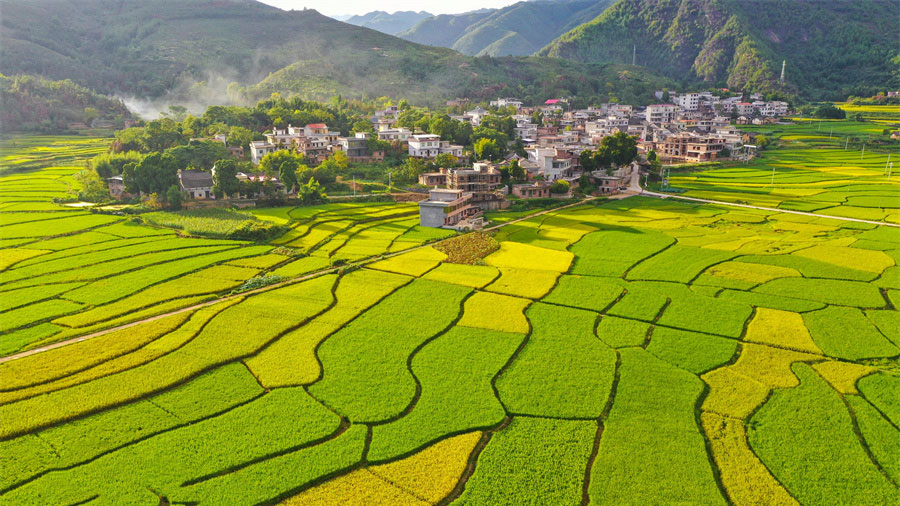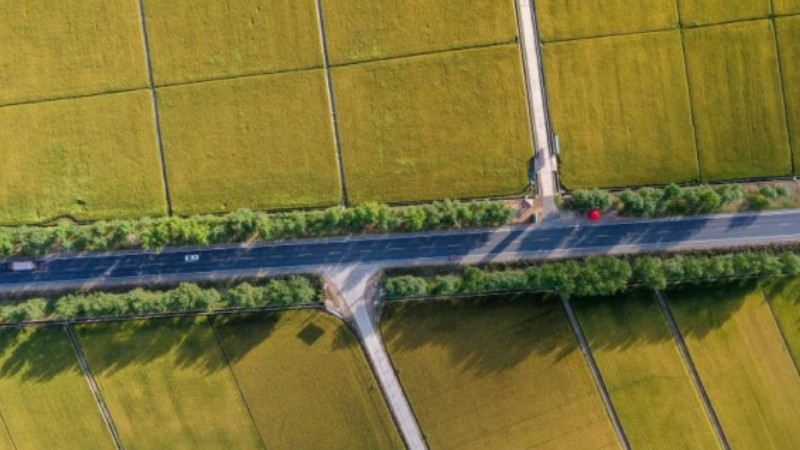County in E China's Anhui explores new ways to turn ecological resources into valuable assets
While practicing the concept that lucid waters and lush mountains are invaluable assets, Jingde, a county in Xuancheng city of east China's Anhui Province, has explored new ways to turn ecological resources into assets in recent years.
With a forest coverage rate of 69.2 percent, Jingde is a state-level model county for ecological progress and a national key ecological function area.
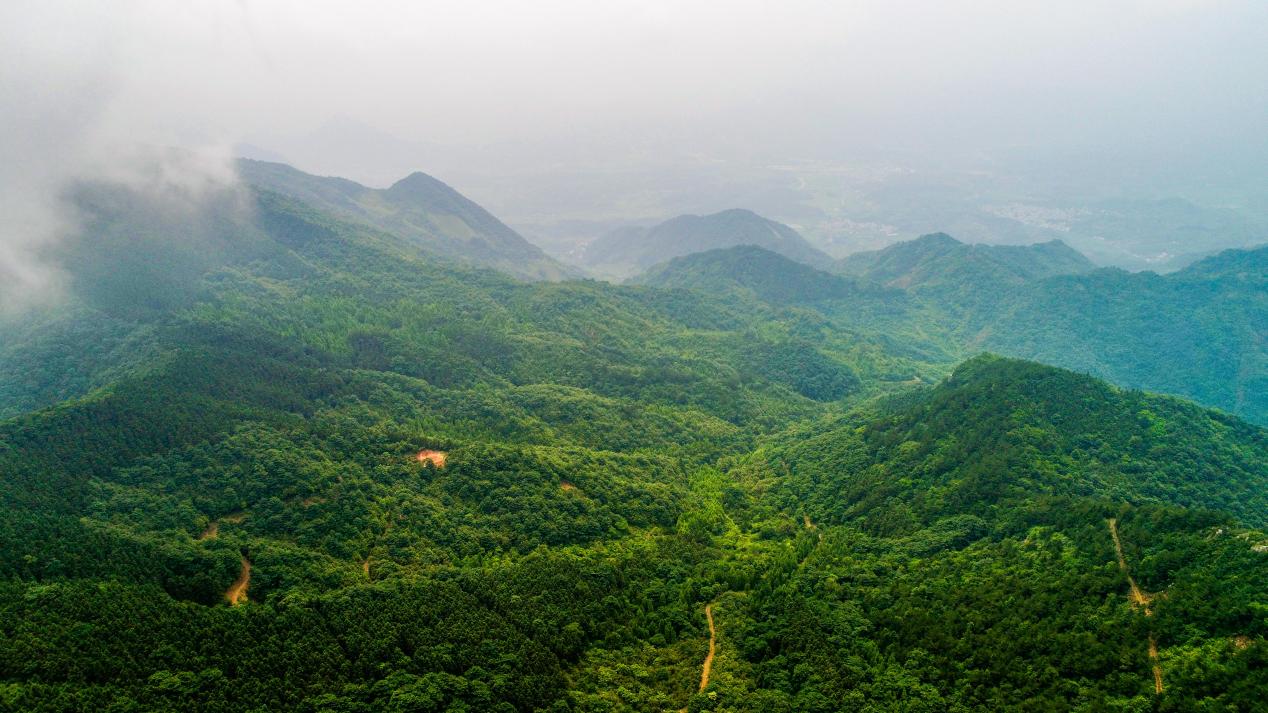
Photo shows Miaoshou Forest Farm in Jingde county, east China's Anhui Province. (Photo courtesy of the forestry bureau of Jingde county)
Liuxi village in the county is situated in a mountainous region. The agricultural and forestry land area located in mountains in the village is 9,358 mu (623.87 hectares), but the area of flat farmland run by the village is small.
More than 20 years ago, residents in the village used to plant fir trees and others for a living.
But things have changed since then. Although it has been nearly a year since Xu Xuefeng, a farmer in Liuxi village, was paid by his village to transfer his land resources management rights, the man is still impressed by how the project has benefited him.
On Aug. 10, 2021, Liuxi village opened a "Liangshan Bank," the first of its kind in Anhui. The name "Liangshan Bank," or "the bank of two mountains," came from the "two mountains" concept, of which "lucid waters and lush mountains are invaluable assets."
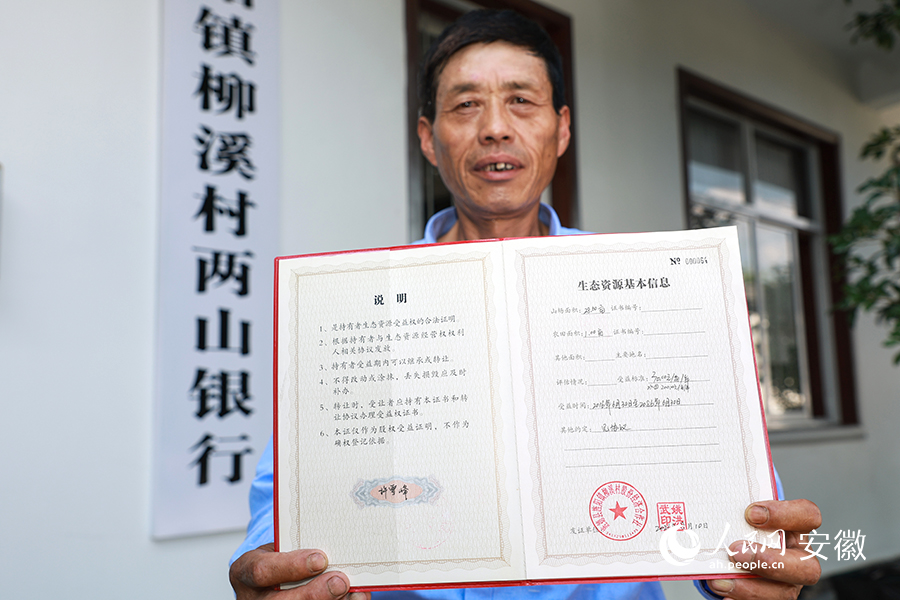
Xu Xuefeng, a villager from Liuxi village, Jingde county, east China's Anhui Province, shows a certificate which proves that he is a beneficiary of the ecological resources transfer program. (People’s Daily Online/Zhang Jun)
Farmers transfer their rights to manage ecological resources such as forests, dry land, farmland, and waters to the village's stock cooperative, which then issues a certificate proving that he or she is a beneficiary of the ecological resources transfer program. During the process, the stock cooperative generates revenue from independent operations or operations through bidding, while farmers obtain rent, dividends and other income. This mechanism effectively turned ecological resources into assets and farmers into shareholders.
The mechanism has put idle ecological resources to use and promoted the high-quality development of the forest economy, ensuring appropriately scaled-up operations of 541,000 mu (36,066 hectares) of forests that were under fragmented management in Jingde, according to an official from the county's forestry bureau. It has also attracted industrial and commercial capital, increased farmers' incomes that come from properties, and strengthened the collective economy.
On May 31 this year, the People's Procuratorate of Xuancheng city started public interest litigation against a man surnamed Song for illegal logging, and the circuit court of the Intermediate People's Court of the city heard the case at a national forest park in Jingde county.
Song cut down 431 trees without a felling license between May and June 2022, which caused a total fee of 3,863.58 yuan ($529) for the loss of the function of local forests and for ecological restoration according to expert evaluation. He was ordered to bear the compensation costs for environmental restoration efforts and expert evaluation fees by purchasing carbon sinks of 80.49 tonnes.
Creatively using the purchase of carbon sinks as a replacement for the restoration of ecological damage not only effectively cracks down on illegal acts that damage the ecological environment, but also solves problems such as the difficulty of environmental restoration and infringers' lack of restoration capabilities, said Liu Chengying, an official with the People's Procuratorate of Jingde county.
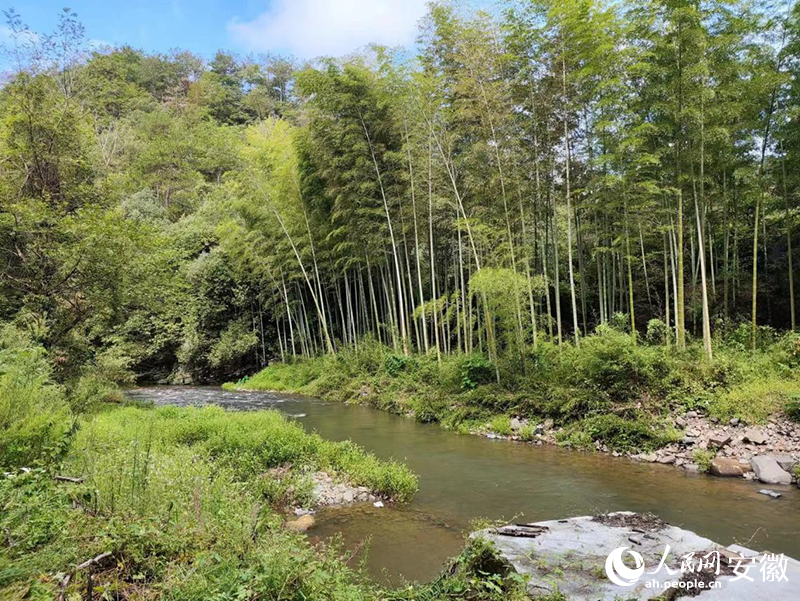
Photo shows a bamboo forest in Yunle town, Jingde county, east China's Anhui Province. (People's Daily Online/Li Kuo)
So far, the People's Procuratorate of Jingde county has initiated two public interest litigation cases pertaining to illegal logging, during which the defendants paid 73,632 yuan to purchase carbon sinks of 1,534 tonnes.
Jingde is a pilot county for Anhui's carbon sink trading program, and Miaoshou Forest Farm in the county is one of the first places for carbon sink trading across China.
On Aug. 24, 2021, Miaoshou Forest Farm signed a carbon sink deal with a company to sell the rights to emit 3,036 tonnes of carbon dioxide for 145,700 yuan. It was the first forestry carbon sink deal in Anhui.
To better turn ecological advantages into economic benefits, the People's Procuratorate of Jingde county also cooperated with other procuratorial organs in the Yangtze River Delta region in terms of the purchase of carbon sinks.
Photos
Copyright © 2023 People's Daily Online. All Rights Reserved.







